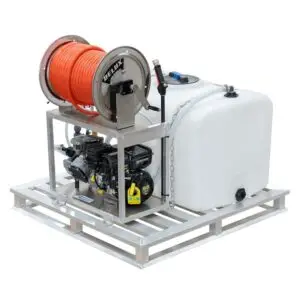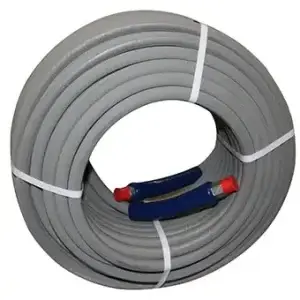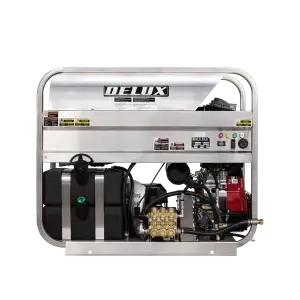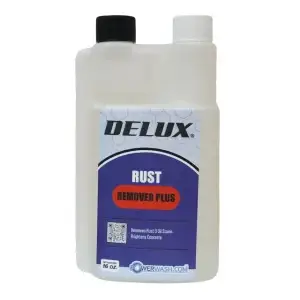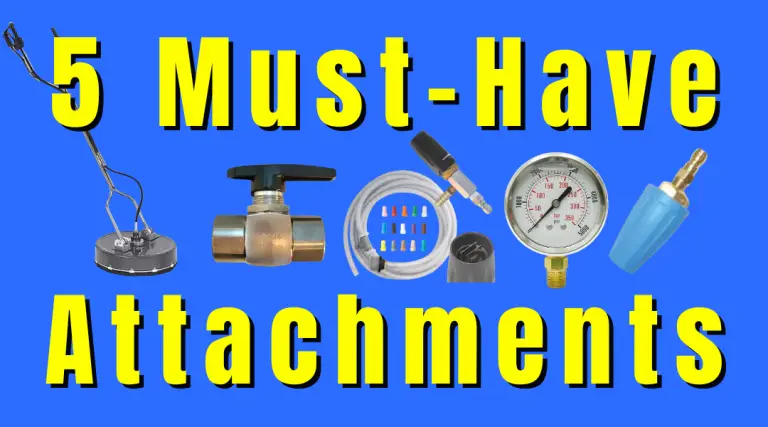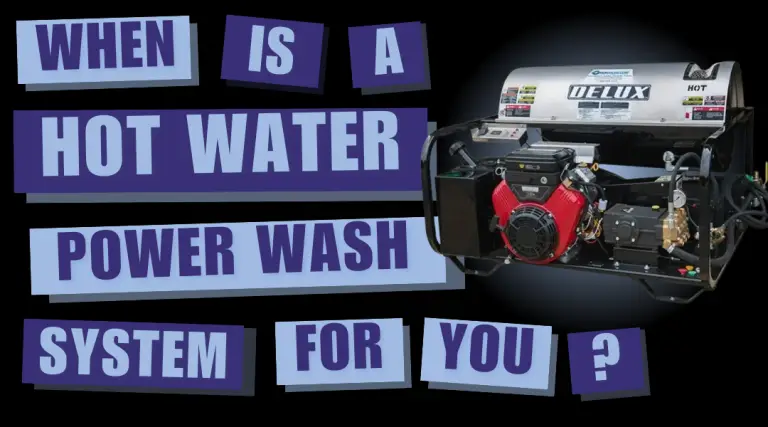- Home
- /
- PowerWash Industry
- /
- How to Pick the Right Pressure Washer Nozzle
Subscribe To Our Newsletter
Stay in the know on the latest products, deals, events, tips & tricks.
Social Media
Popular Products
-
All Pressure Washers
100 Gallon Tank Soft Wash Skid – Vanguard Engine, 11 gpm Pump, Aluminum Skid – Stallion Small Truck Batch
$6,629.97 -
-
-
Awning Cleaning
Rust Remover Plus Pressure Washing Chemical: Achieve Fast, Professional Results!
$14.47
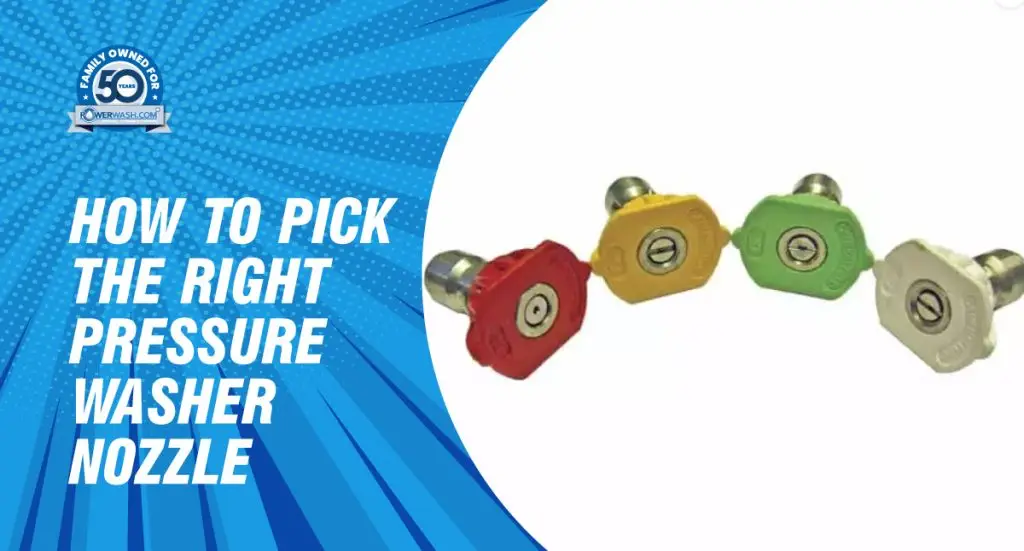
How to Pick the Right Pressure Washer Nozzle
Choosing the right pressure washer nozzle size is crucial to ensure safety and effectiveness during a power washing job. Failing to do so can damage equipment, such as the pump, unloader, or relief valves, and ultimately jeopardize the entire system. Nozzles come in various types, each designed for specific tasks and surfaces, and there are various choices.
Quick-Connect Nozzles
Quick-connect nozzles are the workhorses of pressure washing. As the name suggests, they are effortless to connect and use. These nozzles are color-coded for convenience and enable you to adjust the pressure and flow of your pressure washer easily. They are perfect for various surfaces, from delicate siding to tough concrete. By swapping out the pressure washer nozzles, you can instantly alter the water flow and pressure rate, giving you the versatility you need for various cleaning tasks at a job.
Nozzle Color and Degrees
0° Red Nozzle: this nozzle is the heavy-duty option, perfect for tackling the most challenging cleaning tasks. It excels at blasting away stubborn substances like tar, caked mud, glue, and tenacious stains. Remember to exercise caution when using it near delicate surfaces, as it’s incredibly powerful.
15° Yellow Nozzle: if you need a versatile option for various cleaning jobs, the yellow nozzle is a great choice. It’s suitable for removing grime from farm equipment, preparing surfaces for painting, eliminating growth on marine equipment and boats, and more.
25° Green Nozzle: the green nozzle is the go-to for everyday cleaning tasks. It’s ideal for removing common dirt, mud, and stains from surfaces around the home or workplace.
40° White Nozzle: when it’s time to give the windows, roofs, automobiles, or boats a light cleaning, the white nozzle is your friend. It’s perfect for rinsing and gentle cleaning, ensuring a thorough yet gentle touch.
Black Nozzle: The black nozzle operates at a lower PSI and provides a wider spray pattern, making it ideal for soap applications. This nozzle works with the chemical application tube, creating a siphon effect that draws chemicals and soaps into the pressure washer’s stream. It’s a versatile choice, suitable for applying wax and soap, handling rinsing needs, and delivering a standard maximum force of 500 PSI.
Rotary Nozzles or Rotary Turbo Nozzles
Need to tackle stubborn dirt and stains? Rotary nozzles, also known as Turbo Nozzles, can be a secret weapon. These nozzles can deliver up to ten times the cleaning power of a standard pressure washer. The spinning action creates a powerful, circular motion that offers superior blasting power. Rotary nozzles are ideal for task prep, stripping, and wall cleaning.
Sewer Jet Nozzles
If you’re dealing with clogged pipes, drains, or other plumbing issues, sewer jet nozzles are the go-to choice. These nozzles work by directing one water stream forward to break up clogs and several streams backward to blast away debris. They are versatile and can be used with cold and hot pressure washers. Sewer jet nozzles are essential for maintaining a clean and functional drainage system, ensuring that water flows freely and clogs are a thing of the past.
How to change a pressure washer nozzle
Before you start, make sure the pressure washer is turned off and disconnected from the power source. The next step is to select the right nozzle for the task and remove the old one. After you attach the new nozzle, check for leaks, test, and adjust. Ensure the spray pattern matches your cleaning requirement, and you’re ready to tackle the next task.
Understanding Nozzle Sizing
It’s essential to understand how nozzle sizes work and how they impact the equipment’s performance to choose the correct pressure washer nozzle.
Nozzle Units
Nozzle sizing involves various units and measurements, which can be confusing if you’re new to pressure washing. Here are the primary units to understand.
GPM (Gallons Per Minute): this unit represents the volume of water that your pump uses every minute.
Nozzle Number or Nozzle Size: this refers to the width of the nozzle’s opening and is expressed in nozzle numbers, such as 4.0, 4.5, or 5.0.
PSI (Pounds per Square Inch): PSI indicates the pressure or force the pressure the washer’s pump exerts on the water.
Taking a Look at the Nozzle Chart
The nozzle chart is a valuable tool that helps match the pressure washer’s PSI and GPM to the appropriate nozzle size. The table will show you how to patch the nozzle size on the left with PSI on the right.
Choosing the Right Nozzle Size
The formula for determining the correct nozzle size is as follows:
Nozzle Size = GPM × √(4000 / PSI)
Let’s illustrate this with an example: Suppose you have an 8 GPM pressure washer running at 3000 PSI. To find the appropriate nozzle size, you’d follow these steps:
- Divide 4000 by the PSI (4000 / 3000 = 1.33).
- Calculate the square root of the result (√1.33 ≈ 1.15).
- Multiply the square root by the GPM (1.15 × 8 = 9.2).
In this scenario, you’d need a nozzle with an orifice size of approximately 9.2. Since nozzle sizes come in whole numbers and halves, you can choose a 9.0 or a 9.5 nozzle, depending on your specific needs. A 9.0 nozzle will optimize your PSI, while a 9.5 nozzle will optimize your GPM.
Nozzle Angle and Orifice Size
Nozzle sizes are typically labeled with two numbers. The first two numbers represent the angle of the spray. For example, 0° corresponds to a pinpoint spray, 25° to a wide fan, and 60° to a broad, gentle fan.
Key Takeaways:
- Quick-connect nozzles are the workhorses of pressure washing. As the name suggests, they are effortless to connect and use.
- Need to tackle stubborn dirt and stains? Rotary nozzles, also known as Turbo Nozzles, can be a secret weapon. These nozzles can deliver up to ten times the cleaning power of a standard pressure washer.
- If you’re dealing with clogged pipes, drains, or other plumbing issues, sewer jet nozzles are the go-to choice. These nozzles work by directing one water stream forward to break up clogs and several streams backward to blast away debris.
- It’s crucial to understand how nozzle sizes work and how they impact the equipment’s performance to choose the correct pressure washer nozzle.
Work Smart With the Right Tools
The right pressure washer nozzle size is critical for efficient and safe cleaning. A mismatched nozzle can lead to equipment damage and suboptimal results. To choose the correct nozzle, understand the relationship between PSI, GPM, and nozzle size, and refer to nozzle charts to make more informed decisions. By following these guidelines, you can better ensure that your pressure washer performs at its best and that your cleaning tasks are completed precisely and easily. At POWERWASH.com, we help pressure washers deliver the best possible results through high-quality equipment, chemicals, and knowledge. Call today to talk to a power washing expert and learn how we can help you improve your business.
Share This Post
More To Explore
Tax Benefits For Power Washing Professionals
Navigating the complexities of tax planning can be a daunting task for power washing professionals, yet it’s a crucial aspect …
Top 5 Must-Have Attachments to Elevate Your Power Washing Efficiency and Precision
Attachments for power washing systems are essential tools that significantly enhance the effectiveness, speed, and precision of professional cleaning jobs. …
When Should You Get A Hot Water Power Wash Machine?
When a Hot Water Power Washing System is Your Best Choice When deciding between a hot water power washing machine …
The Science Behing Power Washing
The Science Behind Effective Power Washing The science behind power washing is a balance of pressure, water, and chemical solutions …



